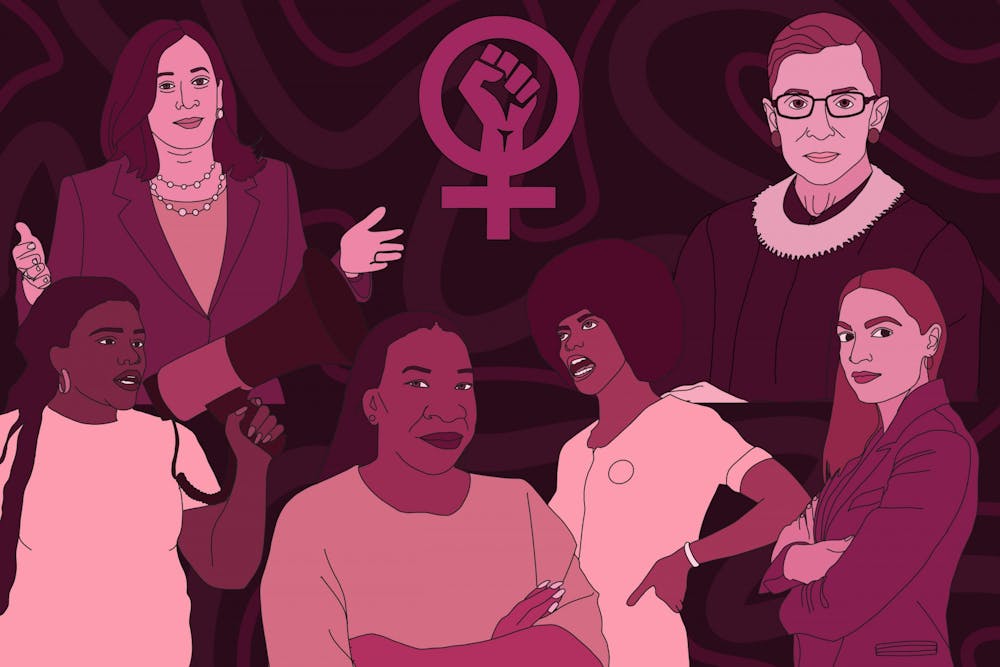March is Women’s History Month — a month devoted to commemorating women and reflecting on their contributions to our present-day society. Ohio University has held numerous events to recognize this month and, on March 23, the Division of Diversity and Inclusion and the Women’s Center are hosting an event titled “Before Roe v. Wade” to discuss women’s reproductive rights.
The event will consist of a presentation by Dr. Susan Rensing, a visiting assistant professor of Gender, Women’s and Sexuality Studies at Kansas State University, who will discuss the historical struggles of women leading up to the landmark Supreme Court decision Roe v. Wade, which legalized abortion.
Dr. M. Geneva Murray, director of the Women’s Center at OU, described that the reason for having this discussion during Women’s History Month is to unveil the intricate tribulations women have faced.
“It's important that we're examining women's experiences in many different facets,” Murray said. “And something that we were interested in looking at from a Women's History Month perspective, was women's issues when it comes to health, in particular, reproductive health. And so we're really excited that our participants will be able to hear about the impact of Roe v. Wade, and other sorts of historical policies that have impacted women.”
In particular, Murray said, the discussion will highlight the impacts on women of color, and focus on the aspect of intersectionality when it comes to reproductive rights.
“Frequently, when one talks about reproductive health, there's a centering on abortion,“ Murray said. “But at the same time in which women have been advocating for rights to abortion, there are also women who have been advocating for the right to not be forcibly sterilized. And so we’re really looking forward to being able to have this nuanced conversation on the role that issues of sex, race and socio-economic class have on the different types of access to reproductive rights in the United States.”
Rensing, who is also a historian of eugenics and reproductive rights, emphasized that her talk will highlight the unbalanced opportunities that minority women have experienced in regard to their reproductive health.
“The right to reproduce is really inextricably linked to the right to not reproduce,” Rensing said. “So we're going to talk about how African American women, Hispanic women in the 1960s and 70s and Native American women on reservations were targeted for involuntary or coercive sterilizations. And at that same time, middle class white women were advocating for greater access to voluntary sterilization. So it's really important to bring an intersectional lens of understanding to that issue so that you can see why different groups of folks saw it differently.”
Dr. Kathleen Sullivan, an associate professor of political science at OU, said the traditional debates surrounding abortion are fundamentally detrimental to understanding the true nature of reproductive justice and the parties that are affected disproportionately by legislation.
“If people are still mired in the pro-choice, pro-life debate, it's really important to see what's going on in the field of reproductive justice,” Sullivan said. “For example … Congress passed the Hyde Amendment, which said you can't use federal funds to have an abortion. And in a sense, a lot of people said that it was a fair use of the government to regulate abortion. But that had a disparate effect on poor women, women of color and on Indigenous women. So it's really important to get away from abstract debates about abortion and start thinking about who's affected by regulations, and then how we're shaping society based on abortion regulations.”
Rensing said she hopes that her talk will enlighten students on aspects of history that they did not previously know, and reshape their perspective of the reproductive rights movement.
“I'm really hoping to give some highlights of some lesser known stories that led up to Roe v. Wade and to actually tell students some things that they might not know, that are a little bit counterintuitive, or maybe surprising to them,” Rensing said. “Whenever I teach these topics, I'm always interested in what students know or think they know about the Supreme Court decision and what led up to it and what life was like in the US prior to that decision. And so I think that it's really interesting to kind of complicate students' understanding of that.”
Murray believes that the presentation will amplify students’ understanding of health disparities and underscore the relevance of these historical discussions in present-day.
“It's really important that we understand histories of health inequities,” Murray said. “It's also really important that we understand the impact that legislation has on people's access to different forms of healthcare. And so I'm looking forward to people being able to make connections between things that have happened historically and things that are very much currently part of our social conversation.”






